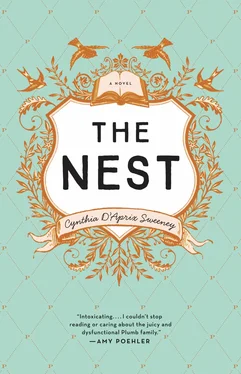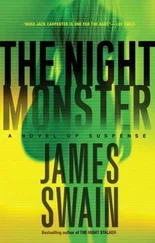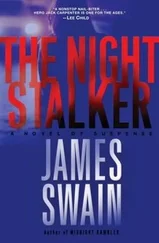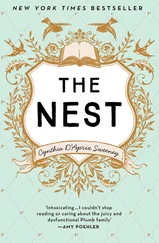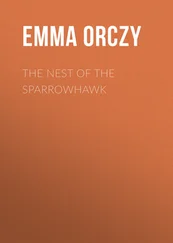So Paul’s discomfort, while standing on a slightly swaying dock, under the relentless afternoon Caribbean sun, waiting to board a ferry while eating a plate of jerk chicken and fried plantains served from a truck in confounding proximity to the diesel fumes from the nearby idling ferry, was immense. Immense and vaguely nauseating.
His consolation? Bea. She was across the dock, sitting on a bench, her face bent to her plate of food and momentarily hidden by the wide-brimmed straw hat he’d bought her the minute they arrived at the ferry terminal from the airport, ten days ago. Although their trip hadn’t been successful by Bea’s measure (she hadn’t found Leo), the trip for Paul had gone exceedingly well. Bea’s spirits had oddly — or maybe predictably — risen a bit each day. Partly it was their surroundings, being away from New York, being away from the Plumbs. But partly it was because Bea seemed to let go a little bit more each day of the need to find Leo. It wasn’t anything she said — she wouldn’t talk about not finding Leo — but her dissipating urgency was obvious to Paul. Her brow seemed to smooth a little each day. Her shoulders unwound. She’d stopped chewing the side of her mouth.
Everyone else seemed convinced that Bea was on a fool’s errand. Well, if that made him the fool’s accomplice, so be it. He’d eagerly volunteered to accompany Bea when she confided how anxious she was about going alone, and not just for the opportunity of her company or to offer support for her fraught mission, but to be there to help her confront Leo if he actually appeared. Paul would be quite happy to confront Leo.
He enjoyed parts of their trip, especially the tiny side-by-side but separate wooden cottages they rented near the water, both with green tile roofs and cherry-colored bougainvillea surrounding the front doors. He appreciated the expansive view of the shimmering blue water that he could admire safely from his shaded deck. And the trip had begun with promise. An airport worker recognized Leo’s photo as someone who’d landed on a small charter from Miami some weeks ago and who hadn’t left, at least not by plane.
But after that initial hopeful sign, nothing. Nobody recognized his photo or — as Paul strongly suspected was the case — they did and didn’t say so. As Bea became increasingly frustrated, he started going out on his own some afternoons, looking in the more remote bars on the island, the places not frequented by tourists and, Paul believed, not appropriate for Bea. But those efforts ran dry, too. Two nights ago he’d coaxed her out for dinner at a small inn on the island. He took her hand in his and made his case for returning to New York. That’s as far as his physical intrusion went. She was preoccupied with Leo, occasionally despondent, and he didn’t want her to turn to him out of sadness or desperation. He’d waited this long, he could wait until they got back to New York. Or he could wait for her to make the first move. They’d been so simpatico lately that he thought he wasn’t crazy in believing she might just make the first move.
And she’d been writing nearly every day. Clickety-clack, clickety-clack. He could hear her from his deck when the door to her room was open, typing on the keyboard. She demurred when he asked what she was working on, but he could tell she was pleased. And he was patient. If Paul Underwood was anything, he was extremely patient.
Then this morning, she’d excitedly knocked on his door before breakfast. She was talking so fast, he didn’t understand her at first. She’d sent fifty pages of something new to Stephanie, she told him.
“More Archie—”
“No, no,” she said, shaking her head vigorously. “No Archie. No more freaking Archie. Something else. I don’t even know what it is yet, but listen.” Bea read from Stephanie’s e-mail, lavish with praise for the pages and ending with “Keep going. I love this. I can sell it.” And just like that, Bea was ready to go home.
They’d slipped some cash to a local police officer, asking him to “keep his eyes open” for Leo. They packed their things and booked their flights. They were waiting for the ferry to take them to the larger island’s airport. Paul walked over to Bea as she stood and tossed her empty plate of mediocre food in a nearby trash can. He had a headache.
“I’m going to go across the street to look for aspirin,” he said. “I’ll be right back.” He walked over to the small gas station and accompanying rickety wooden building that sold mechanical parts and a smattering of groceries and other sundries. Flanking the doors were two small stands with boxes of mangoes in various states of ripening, swarms of fruit flies hovering over each crate. Inside, Paul went to grab the guava soda Bea liked. He could hear a lively crowd in a side room, a bunch of men laughing. He smelled weed.
Paul heard Leo before he saw him, recognized the barking laugh that was distinctly Leo’s. He told himself he was just imagining things, that they’d spent so many hours of so many days looking for Leo that he was constituting him out of thin air in the very last minutes before boarding the ferry. But then he heard the laugh again, closer, and the man with the laugh was heading to a rear restroom. Paul ducked behind a cardboard display for Kodak film that had to be at least twenty years old, two life-size all-American teens holding tennis rackets and laughing; the sun had faded all the pigment on the display to various shades of blue so the models looked ghostly in spite of their jauntily cocked elbows and toothy smiles. From his spot behind the display, he saw the back of the laugher’s head, took in his height, his hair, the particular profile that was, absolutely and beyond any doubt, Leo Plumb.
He’d found Leo.
LATER PAUL WOULD TELL HIMSELFhe hesitated that afternoon in the bodega because he’d had too much sun. Or that it was the jerk chicken that was already roiling his stomach with ill portent given that they were about to get on a ferry and then a small plane to Miami and then a bigger plane to New York. Or shock, sheer shock. He’d never really expected to find Leo. He hurriedly paid for the soda and a tiny bottle of baby aspirin, which was all they had. As he made his way across the street, he thought about what to tell Bea. Back at the ferry terminal, he found a bit of shade at the side of the building and stopped to think for a minute. Seeing Leo again made Paul realize how much he loathed him. Nathan had told Paul about Leo’s undermining tactics, how he’d questioned Paul’s leadership and competence. Paul had been furious but he also recognized that Leo’s misstep had angered Nathan enough to tip the scale in Paul’s favor. The first influx of Nathan’s funding had already arrived and Paul was working night and day to prove to Nathan that he’d made the right choice.
From afar he could see Bea, still sitting where he’d left her. The straw hat was on the bench beside her; she was getting too much sun. She was wearing the old yellow dress he remembered from her first SpeakEasy photo, the picture he’d chosen for the cover, a decision that somehow ended up being credited to Leo. Like then, her face was in profile, her expression undimmed, hopeful. He walked over and handed her the drink.
“Nice and cold,” she said, holding the bottle with two hands and putting it to her cheek. “What?” she said, looking up at his face. “What’s wrong?”
“Nothing,” he said, attempting to clear whatever was clouding his expression. “I was just thinking that you look really happy right now.” His heart galloped, knowing what he knew and what he wanted to do with what he knew.
“I am kind of happy,” she said, sounding surprised. Their ferry had arrived and its disembarking passengers streamed out onto the dock.
Читать дальше
Конец ознакомительного отрывка
Купить книгу
